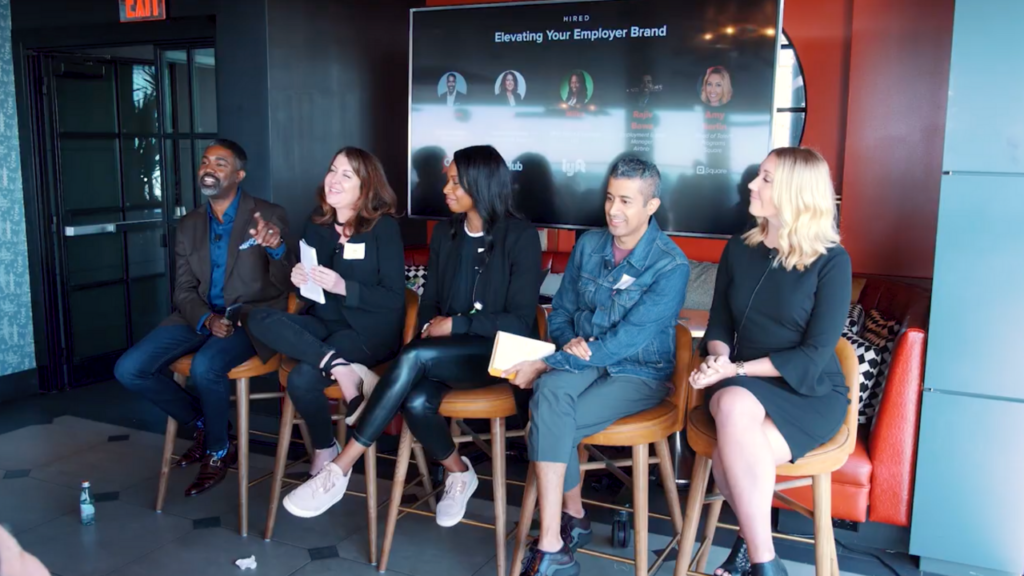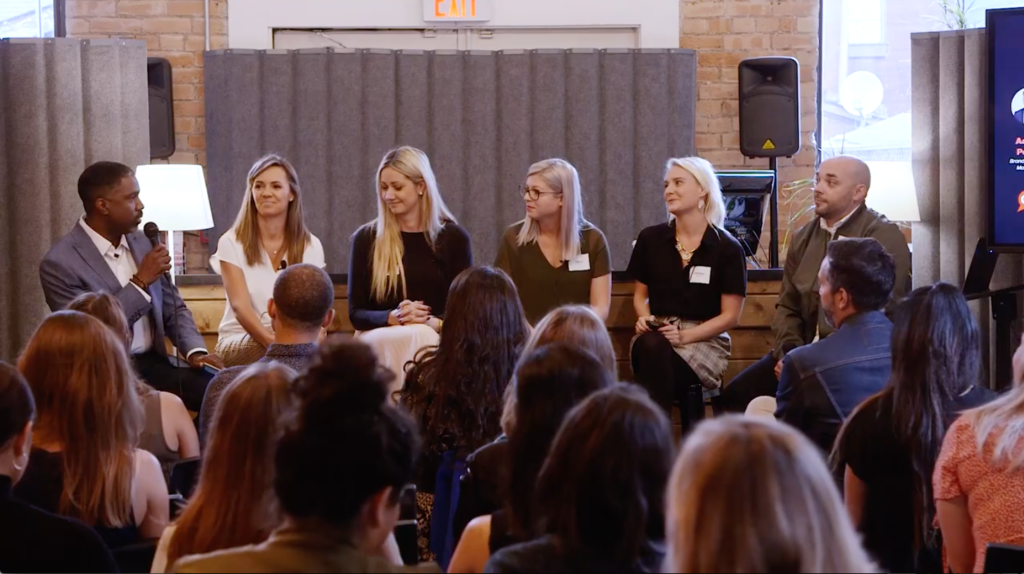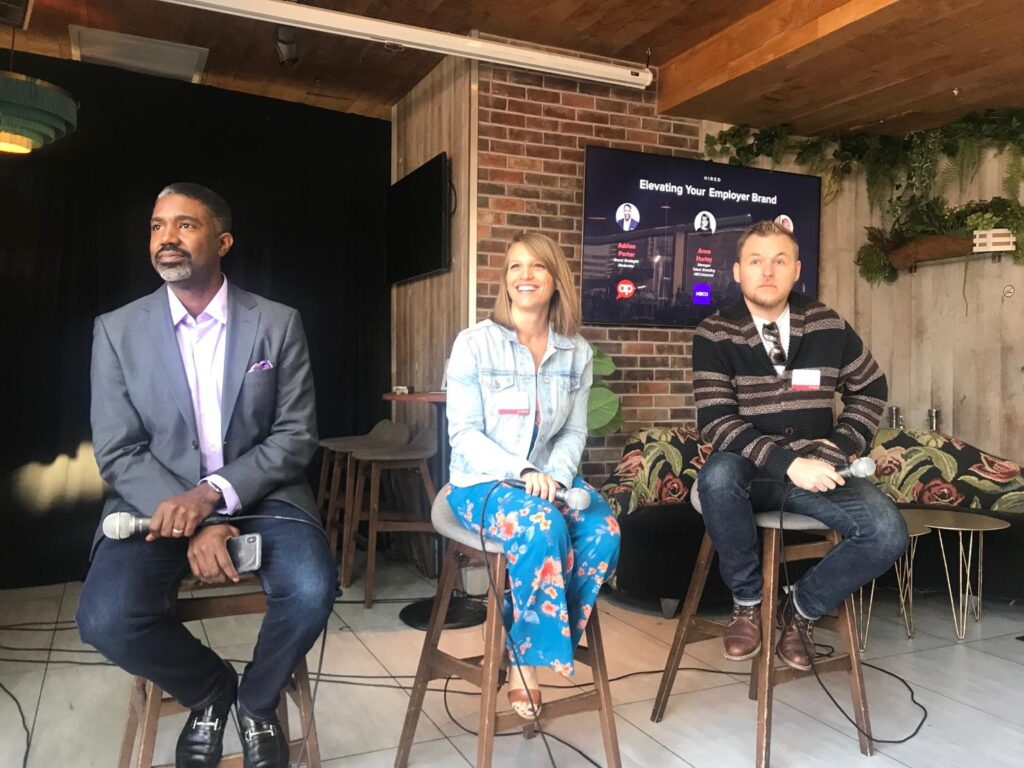
Hired, Inc recently released their annual Global Brand Health Report, a deep dive into which companies tech talent want to work for across 14 major tech hubs, and why.
To further amplify the insights from the report, I had the pleasure of partnering with Hired on a 5-city roadshow in the states and abroad (San Francisco, Boston, New York, Seattle, and Toronto) to lead conversations with employer brand executives from top companies including NBCUniversal, Airbnb, Lyft, HubSpot, Github, Square, Thomson Reuters, and others.

As much of our conversation centered on the employer brand strategies —we also discussed many underserved areas of focus when it comes to recruiting, retaining, and overall diversity and inclusion efforts.
For example, below is a clip from our discussion in Boston, where I discussed the power and value of age and generational diversity in the workplace.
Below some of the following key takeaways from our conversations across the roadshow:
Defining your employer brand
Your company’s employer brand or employee value proposition (EVP), is your promise to candidates and employees alike — and can be a powerful differentiator. Put simply, Andrew Blancato, VP of People at Kickstarter, believes “employer brand is the perception of what it’s like to work at a company.”
While the majority of the panelists I spoke with believe that talent teams should drive employer brand initiatives, all agree that it should be a collaborative process.
Amy Berlin, Head of Talent Programs at Square, worked closely with the company’s marketing team to define their employee value proposition to ensure it “nestles under the overall company’s brand.”
Similarly, Nilka Thomas, VP of Talent & Inclusion at Lyft, saw the marketing team as a partner to ensure that Lyft’s driver brand, consumer brand, and employer brand were “all readily connected.”
Above all, Andrew Levey, Talent Acquisition Manager Technology Solutions at TD Bank, believes an employer brand should be transparent and authentic to ensure companies and candidates are meeting in the middle to accurately assess one another.
Measuring and monitoring success
During Hired’s panel discussions, I also asked panelists to share how they measure the success of their employer branding initiatives. A common thread throughout the discussion was the importance of feedback loops.
Specifically, Nilka makes use of Lyft’s candidate experience surveys to gauge her team’s effectiveness during the hiring process and identify opportunities for growth.
At Square, Amy shared that follower growth on Linkedin is a helpful performance indicator for an employer brand campaign. Her team sets follower growth goals for each campaign and leverages competitor follower growth to benchmark the team’s efforts.
Pinpointing what matters to candidates

There is no shortage of flashy perks and benefits among innovative companies looking to attract top talent, but what truly motivates a candidate to work at a company? Hired’s 2019 Brand Health Report reveals that compensation takes the cake, followed closely by company culture and opportunity to learn new skills.
I asked our panelists which benefits and perks move the needle for their employees and hiring team:
- Gia Colosi, Head of Employee Engagement & Services at GitHub, shared that her team is embracing flexible and remote work options; 52% of the company works remotely — and for good reason. Our research shows that 65% of tech talent are open to working completely remotely.
- Rajiv Bawa, Employment Brand Manager at Airbnb, reported that the company leads with “No Meeting Wednesdays”, which has resonated with employees and candidates alike. The company also gives employees quarterly Airbnb credits to use towards stays and experiences on the platform.
- Lyft’s employee development team has tapped into this appetite to learn new skills by offering tuition reimbursement and launching an “exploreship” program that allows employees to rotate cross-functionally to learn new skills.
Your employer brand can make or break your company’s hiring and retention efforts. It is my hope that my conversations with the various leaders throughout this event series — paired with data insights from Hired — will empower companies to put their best foot forward and win over the best tech talent!
Also, a huge thank you to all of the following expert panelists for sharing their valuable insights:
